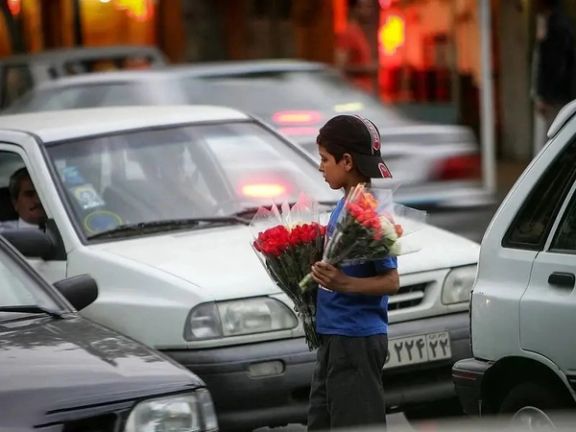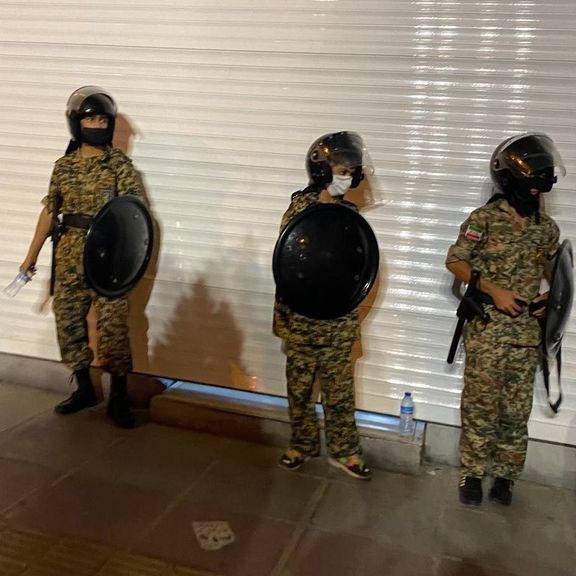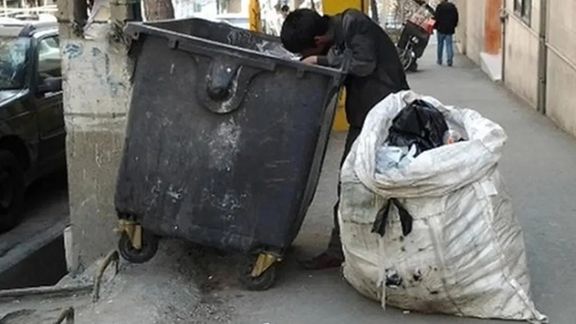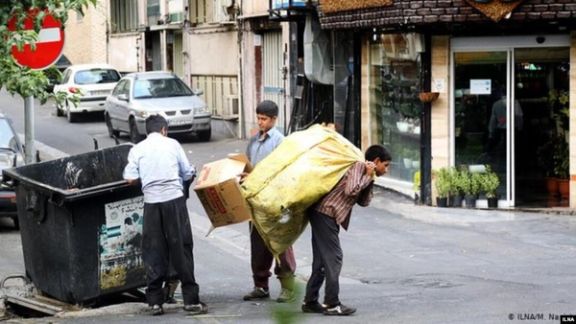Over 3 Million Child Laborers in Iran, Activist Warns

Despite gross government underreporting, a children’s rights activist and lawyer says official estimates suggest that the actual number of child laborers in Iran exceeds three million.

Despite gross government underreporting, a children’s rights activist and lawyer says official estimates suggest that the actual number of child laborers in Iran exceeds three million.
In October 2022, during Iran's nationwide protests, one of the country's largest independent anti-poverty charities reported that many minors were recruited to attack protesters in exchange for essential food supplies. Over 500 members and supporters of Imam Ali's Popular Student Relief Society (IAPSRS) stated that authorities employed children as part of their forces against anti-government protesters.
During the peak of the uprising, as the Islamic Republic’s repressive forces faced fatigue and shortages, it became increasingly evident that impoverished children were recruited to suppress the protests. Images of children, some not even wearing shoes and teenagers in anti-riot uniforms of the Basij and Revolutionary Guards surfaced on social media, sparking widespread outrage among users.

At the same time, the Association for the Protection of Children's Rights issued a statement condemning the use of children to suppress street protests, as well as the killing and arrest of children and teenagers during the nationwide uprising in Iran.
Garbage Collecting Mafia and Child Labor in Iran
Many working children are taken advantage of by organized crime groups in the streets to do dirty and odd jobs for small compensation.
Speaking at a meeting in Tehran on the role of public awareness in ending child labor, held on the eve of the World Day Against Child Labor, Farshid Yazdani, a children's rights activist, criticized Iranian authorities for wrongly emphasizing that child laborers are involved in "gangs and mafia." He stated, "Our studies show that the maximum level of coordination is that child laborers do these jobs [garbage collecting], as a family," as reported by Hammihan on Tuesday.

In this meeting, Reza Shafakhah, the secretary of the children's rights committee of the human rights working group of the National Union of Bar Associations, emphasized that child labor is a phenomenon that does not have a mafia, but garbage collection has a mafia.
Shafakhah added: "Even if it is a mafia, it still does not reduce the duties of government organizations."
Inaccurate Government Statistics of Child Laborers in Iran
In another part of this meeting, Yazdani discussed the government's varying and inaccurate statistics on the number of child laborers and stated: "In 2018, we identified about 4,800 garbage-picking children in the city of Tehran.

At the meeting, Mohammad Saleh Noghrehkar, head of human rights at the Bar Association, cited former Minister Ali Rabiei's claim at a Child Labor Convention in Brazil during Hassan Rouhani's presidency that "We don't have child scavengers in Iran." Noghrehkar countered, noting that the IAPSRS had identified 120,000 child scavengers that same year.
Shafakhah further stated that there are 19 million marginalized people in Iran and emphasized that the latest official number of working children is "three million."
According to him, IAPSRS had 44 centers that covered 6,000 children all over the country before its dissolution.
Iran’s Crackdown on NGOs and Children’s Rights Activists
In 2020 Iranian security forces detained the founder and director of IAPSRS Sharmin Meymandinejad and two of the managers of IAPSRS following a complaint filed by the Islamic Revolutionary Guard Corps (IRGC).
Susequently, the Ministry of Interior of the Rouhani government filed a complaint with the judiciary, requesting the dissolution of this organization by the judicial authorities.
The court hearing of the IRGC complaint was held on 2 March 2021, and in a rare move, a day later, on 3 March 2021, the court issued a ruling to dissolve IAPSRS.
The Rouhani government's Ministry of Interior requested the dissolution of this organization, citing accusations such as "issuing political statements during critical times in the country and engaging in anti-religious activities."
Shafakhah, heading the legal team of IAPSRS, stated that the indictment presented to the court regarding IAPSRS and its members began with the assertion that "NGOs are seeking a velvet and colorful revolution."
In the indictment, civil activists were referred to as "informers of international organizations" because "in international forums and UN Committee on the Rights of the Child, they provide statistics about Iran's social harms that lead to the approval of resolutions against Iran."